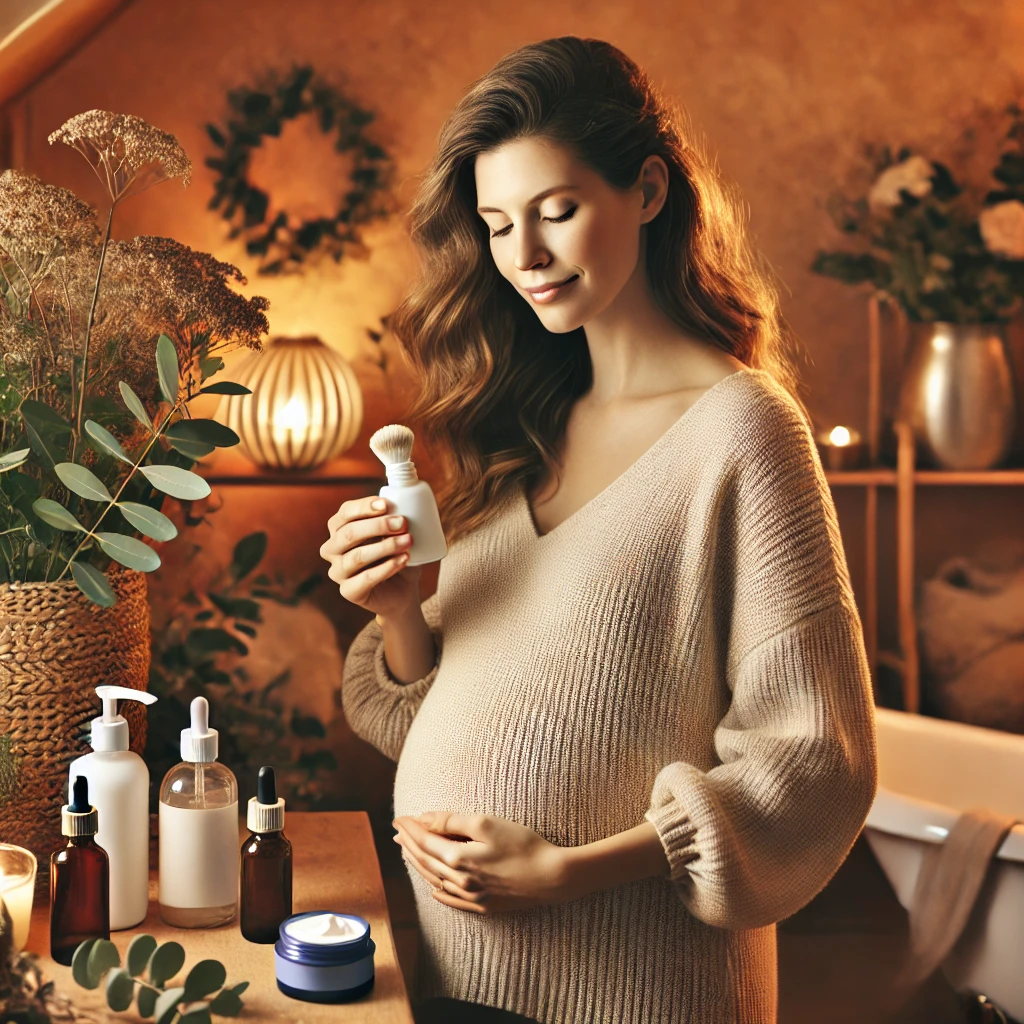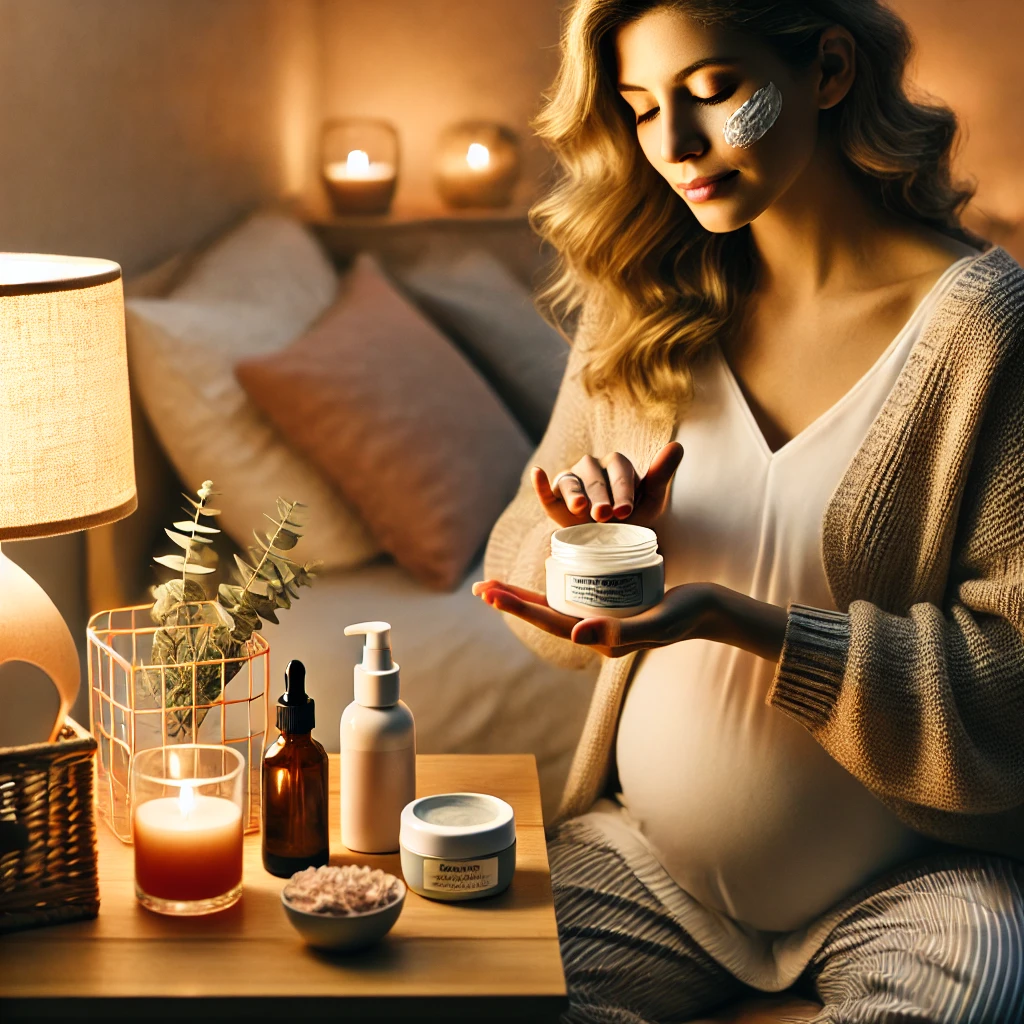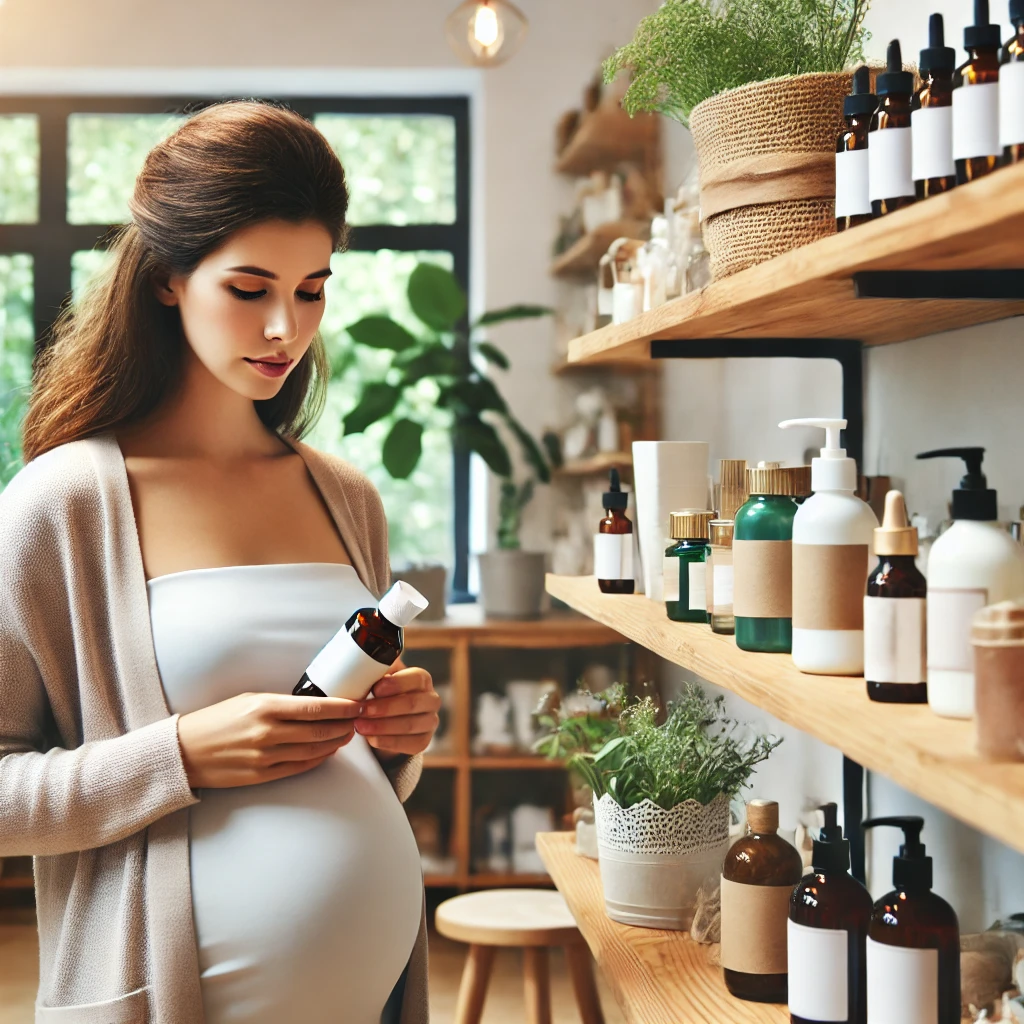Table of Contents
Understanding the Importance of Skincare During Pregnancy
Pregnancy is a significant period in a woman’s life, accompanied by numerous physical and emotional changes. One aspect that requires special attention is skincare. Expectant mothers often experience various skin changes due to hormonal fluctuations, which can manifest as acne, melasma, or stretch marks. These alterations can influence not only the mother’s appearance but also her emotional well-being.
During pregnancy, hormonal levels soar, leading to changes in oil production and skin sensitivity. Some women may find themselves battling adult acne for the first time, while others may develop melasma, characterized by dark patches on the face. Additionally, the skin may stretch as the body accommodates the growing baby, resulting in stretch marks. Each of these common conditions emphasizes the need for an effective skincare regimen tailored to the unique needs of expectant mothers.
Safe skincare practices are paramount during this transformative time. Expectant mothers should be cautious about the products they use, as certain chemicals and ingredients can pose risks to both the mother and the unborn child. Ingredients such as retinoids, salicylic acid, and certain essential oils should often be avoided, as they may have potential side effects during pregnancy. It is advisable to opt for natural, gentle alternatives that nourish the skin without compromising safety.
Furthermore, maintaining a skincare routine can offer emotional and psychological benefits. During pregnancy, feelings of anxiety and body image issues can arise as women navigate the physical transformations. Establishing a consistent skincare ritual can serve as a form of self-care, allowing mothers to connect with their changing bodies and foster a sense of control. This practice not only enhances skin health but also promotes a positive mindset during an exciting yet challenging time.

Common Skincare Ingredients to Avoid
During pregnancy, the body’s physiological changes necessitate a thorough evaluation of the skincare products used daily. Certain ingredients, although effective in ordinary circumstances, can pose potential risks to both expectant mothers and their developing babies. Understanding which ingredients to avoid can empower women to make informed decisions about their skincare routines.
One notable ingredient to steer clear of is retinoids, which are commonly found in anti-aging and acne products. Retinoids, including tretinoin and isotretinoin, have been linked to severe birth defects when used during pregnancy. Therefore, it is crucial for expectant mothers to opt for safer alternatives, such as products containing natural ingredients like vitamin E or hyaluronic acid.
Another component that should raise concern is salicylic acid, particularly in high concentrations. While low doses can be considered safe, excessive use—especially in oral forms—might lead to complications. It is advisable to consult a healthcare professional when using products that contain this ingredient during pregnancy.
Parabens, widely used as preservatives in cosmetics, also deserve scrutiny. Studies suggest that parabens can interfere with hormonal regulation and are detectable in breast tissue. Given the potential implications, pregnant women should choose paraben-free products to minimize exposure to these synthetic compounds.
Certain essential oils, despite their natural origin, can be harmful when used inappropriately. Oils like rosemary, thyme, and sage may induce uterine contractions and should be avoided during pregnancy. It is essential to research the safety profile of any essential oil before use, particularly in concentrated forms.
In light of these potential risks, expectant mothers must diligently read labels and enhance their understanding of skincare ingredient lists. By prioritizing safety and awareness, they can promote healthier choices for themselves and their babies.
Safe Skincare Alternatives for Expectant Mothers
Pregnancy is a beautiful yet transformative period that often requires adjustments in various aspects of a woman’s lifestyle, including skincare. As expectant mothers become more mindful of the products they use, there is a growing demand for safe skincare alternatives that prioritize both effectiveness and the health of the developing fetus. Natural and organic options are increasingly popular, providing mothers-to-be with nourishing solutions that are gentle on their skin.
One highly regarded option is the use of natural oils. Coconut oil, for instance, is renowned for its moisturizing properties and is safe for pregnant women. It can be used to hydrate the skin and alleviate any dryness or irritation. Similarly, almond oil and jojoba oil are excellent choices due to their lightweight texture and skin-nourishing benefits. These oils can be easily incorporated into daily routines, whether as part of a moisturizing regimen or as a soothing remedy for stretch marks.
In addition to oils, selecting gentle cleansers is crucial for expectant mothers. Look for products that are free from harsh chemicals, fragrances, and artificial preservatives. Brands such as Cetaphil or Vanicream offer pregnancy-safe formulations that maintain skin’s natural balance while cleansing effectively without causing irritation. Furthermore, nourishing moisturizers from brands like Aveeno or Burt’s Bees are designed specifically to be gentle for sensitive skin during pregnancy. These products can provide vital hydration and support skin elasticity during this pivotal time.
For those interested in DIY skincare remedies, numerous natural ingredients can serve as effective alternatives. Ingredients such as honey, aloe vera, and oatmeal can be easily incorporated into homemade masks and scrubs, offering a safe and effective way to enhance skincare routines. By utilizing these elements, expectant mothers can confidently care for their skin while staying within the realm of safe and natural choices.
Developing a Personalized Skincare Routine
Creating a tailored skincare routine during pregnancy is essential for addressing the unique changes that may occur in the skin. Expectant mothers often experience fluctuations in hormones, which can lead to common skin concerns such as dryness, acne, and sensitivity. To develop an effective skincare regimen, beginning with a gentle cleansing routine is vital. Use a mild, soap-free cleanser to remove impurities without stripping the skin of its natural oils. It is advisable to cleanse the face twice daily for optimal results.
Moisturizing should follow cleansing, as it helps to maintain hydration and prevent dryness. Look for moisturizers formulated with ingredients that are safe for use during pregnancy, such as hyaluronic acid, glycerin, and cocoa butter. A high-quality moisturizer not only hydrates the skin but can also improve elasticity, promoting a healthy and glowing appearance.
Sun protection is a pivotal aspect of any skincare routine, especially during pregnancy. Pregnant women may be more susceptible to sun-related skin changes, such as melasma. Therefore, incorporating a broad-spectrum sunscreen with an SPF of at least 30 is essential. Ensure it is free from harmful chemicals and fragrance, capitalizing instead on mineral-based sunscreens containing zinc oxide or titanium dioxide for optimal safety.

In addition to daily care, addressing specific skin concerns is vital. For issues such as stretch marks or hormonal acne, opting for products that utilize safe ingredients is crucial. Always initiate the use of new products with a patch test to check for any adverse reactions. Gradually introduce new items to your routine, allowing your skin to adjust and minimizing the risk of irritation.
Lastly, consulting with healthcare providers or dermatologists is recommended for personalized advice. They can offer valuable recommendations tailored to your specific skin type and conditions, ensuring the safety of all products used throughout your pregnancy.






Thank you for some other excellent article. Where else could anyone get that type of information in such an ideal approach of writing? I have a presentation subsequent week, and I am on the look for such information.